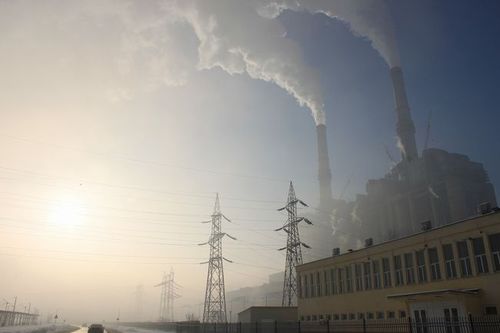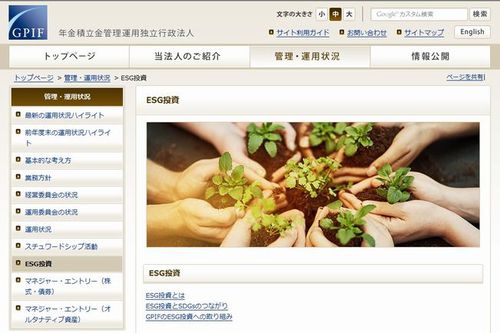JFS Newsletter No.184 (December 2017)

Image by creisi Some Rights Reserved.
The April 2017 edition of the JFS newsletter introduced Kamakura Management Investment Co. through an interview with Kazuhiro Arai, director and asset manager of this Japanese investment company that is striving to build a better society by investing in what it refers to as "ii kaisha" ("good companies").
Supporting 'Good Companies' that Create Future Society
https://www.japanfs.org/en/news/archives/news_id035814.html
In his book "Jizoku Kano-na Shihon Shugi" ("Sustainable Capitalism," published in 2017 by Discover 21, in Japanese), Arai wrote about the world economy after the financial global crisis of 2007 and 2008, criticism in Japan and overseas of the existing model of capitalism, and the limits of efficiency-first and the pursuit of profit above all.
Through his past experience and a deep realization of the limitations of the conventional financial system, Arai made up his mind to develop a new system to make long-term investments only in "good companies." This is the investment style Kamakura Management has adopted. They define "good companies" as companies that are accountable both economically and socially, the kinds of companies that are needed for the future of society.
What kinds of " good companies" already exist in Japan? With Arai's permission, JFS will introduce "good companies" covered in his book. In this article, the first of a series, the JFS Newsletter introduces companies that value worker happiness.
Japan's Government Pension Investment Fund (GPIF), the world's largest pension fund, announced on July 3, 2017, that it has selected three ESG indices for incorporating ESG factors of environment, social and governance into Japanese equity investment. In this article, we will explain the characteristics of these indices, including the purpose of their selection, expected benefits and selection process.
GPIF selected three ESG indices for Japanese equities and commenced passive investment linked to these indices. Since the solicitation period last summer for ESG stock indices, 27 indices have been proposed by 14 companies in Japan and abroad. In selecting the indices, GPIF emphasized that (1) highly-rated shares are selected via "positive screening", (2) the evaluation should be based on public information, and its methods and results should be disclosed and, (3) ESG evaluators and index providers should be properly governed and their conflicts of interest should be managed.
As a general index targeting all three ESG factors, GPIF selected the UK's FTSE, the USA's MSCI and the MSCI Japan Empowering Women Index, a thematic index focusing on social factors. Passive Investment tracking the ESG indices commenced, initially accounting for 3% of the Japanese equity portfolio (about 1 trillion yen or US$ 9 billion).
The three selected indices are: the FTSE Blossom Japan Index, the MSCI Japan ESG Select Leaders Index and the MSCI Japan Empowering Women Index. The FTSE Blossom Japan Index only selects companies skilled in dealing with domestic and overseas environment, social and governance factors. The MSCI Japan ESG Select Leaders Index selects high ESG-rated stocks from each sector until they reach 50% coverage of the sector's market capitalization of the parent index. The MSCI Japan Empowering Women Index selects the top half shares with high gender diversity scores from each sector of the parent index. Aside from these indices, GPIF continues to screen other thematic indices related to the environment.
President Norihiro Takahashi noted that, "GPIF expects that the selected ESG indices incentivize Japanese companies to improve their ESG evaluations and enhance enterprise values in the long term. If overseas investors focusing on ESG with a long-term horizon follow, the investment returns of Japanese equities are likely to improve. GPIF, as a universal owner (large-scale investor holding well-diversified portfolio), is responsible for yielding benefits for its pension beneficiaries by optimizing the investment value chain".
Expansion of ESG investment results in a virtuous cycle leading to building a sustainable society. The expansion encourages companies to enhance their activities in improving their ESG evaluations, increases Japanese enterprise values and improves the performance of Japanese equities and soundness of pension finance. GPIF noted that while checking the effectiveness of ESG investments in the medium-term, it will expand ESG investments including active investments and utilization of other ESG indices in the future.
World Greenhouse Gas Levels Reach New High in 2016

Image by byrev.
The United Nations' World Meteorological Organization (WMO) released the WMO annual Greenhouse Gases Bulletin No. 13 on October 30, 2017, reporting that the major greenhouse gases (carbon dioxide, methane and nitrous oxide) have continued to increase and globally averaged levels of each reached new highs in 2016. The bulletin also points out that recent CO2 levels have been increasing at an unprecedented speed.
The Japan Meteorological Agency runs the World Data Center for Greenhouse Gases (WDCGG), which gathers and analyzes data on greenhouse gases observed globally under WMO programs. The WMO annual bulletin was compiled based on data analyzed by the WDCGG on the average global concentration of greenhouse gases through 2016.
Globally averaged concentrations of CO2, methane and nitrous oxide in 2016 reached 403.3 parts per million (ppm), 1,853 parts per billion (ppb) and 328.9 ppb, respectively, which are the highest values ever since analysis began. These figures are equivalent to 145 percent, 257 percent, and 122 percent, respectively, of those in pre-industrial 1750. CO2 increased by 3.3 ppm from 2015 to 2016, marking the largest increase ever recorded.
The changes in CO2 concentrations during the past several hundred thousand years can be determined from air locked in ice sheets in the polar regions. According to the research, the concentration of CO2 rose by 80 ppm during a few thousand years at the end of the last ice age, while it has also increased by more than 80ppm during the last few decades. This speed of CO2 increase, 100 times faster than during the ice age, is unprecedented in the past several hundred thousand years, and so is the concentration level of 400 ppm.
Japan for Sustainability (JFS) is a non-profit communication platform to
disseminate environmental information from Japan to the world. We are
grateful that people in 191 countries have found an interest in our free
e-mail publications, and will continue to do our best to deliver useful
information to our readers all around the globe.
Please feel free to forward this message to your colleagues and friends
wherever the Internet can reach. If you know colleagues or friends there
with an interest in sustainability, please do forward them one of our
newsletters and invite them to try our service. To subscribe for JFS
Newsletters, visit www.japanfs.org/en/newsletter/subscribe.html

If you find our information and activities unique and valuable,
we appreciate your support!
http://www.japanfs.org/en/join/donation.html

Use this form http://www.japanfs.org/acmailer/unsubscribe.html to
remove your email address from our mailing list.

We welcome your comments. Please send them to: info@japanfs.org

Japan for Sustainability (JFS)
 |  |  |
Copyright (c) 2018, Japan for Sustainability. All Rights Reserved.


